CPS Unit Number 027-02
Camp: 27
Unit ID: 2
Operating agency: MCC
Opened: 9 1943
Closed: 12 1946
Workers
Total number of workers who worked in this camp: 87
-
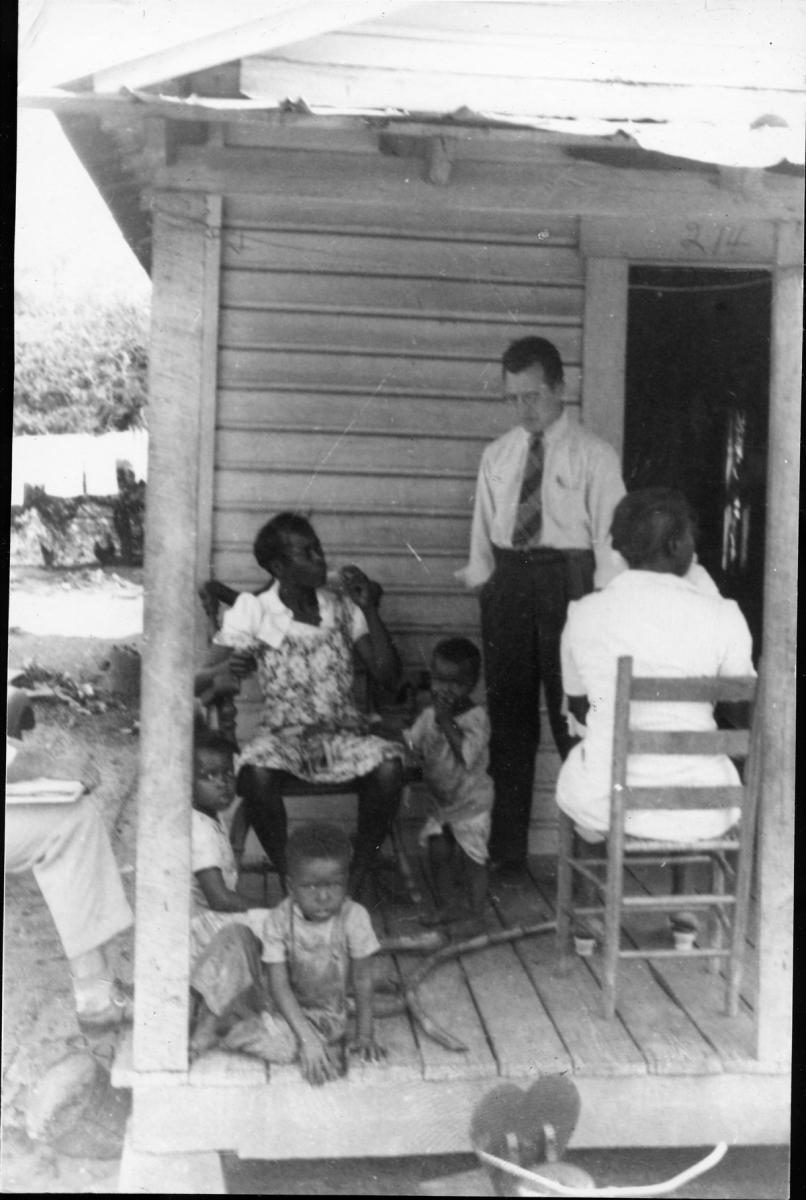 CPS Camp No. 27, Florida State Board of Health, Subunit 2, Mulberry, FloridaWilliam Yoder talks over sanitation problems with his friends on sanitation survey.Digital Image at Mennonite Church USA Archives, North Newton, Kansas
CPS Camp No. 27, Florida State Board of Health, Subunit 2, Mulberry, FloridaWilliam Yoder talks over sanitation problems with his friends on sanitation survey.Digital Image at Mennonite Church USA Archives, North Newton, Kansas -
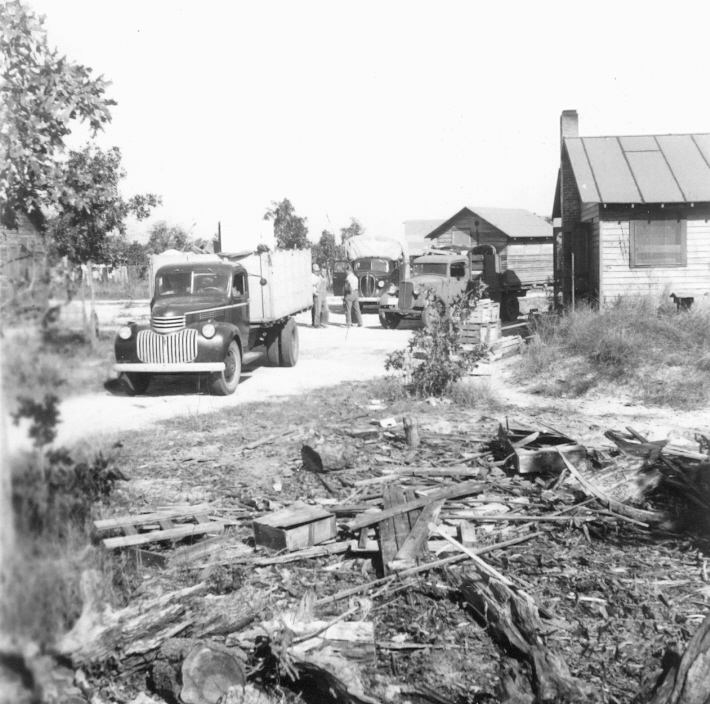 CPS Camp No. 27, subunit 1, Crestview Florida.Leaving Camp Crestview site Nov. 12, 1943.Digital Image © 2011 Brethren Historical Library and Archives. All Rights Reserved.Nov. 12, 1943
CPS Camp No. 27, subunit 1, Crestview Florida.Leaving Camp Crestview site Nov. 12, 1943.Digital Image © 2011 Brethren Historical Library and Archives. All Rights Reserved.Nov. 12, 1943 -
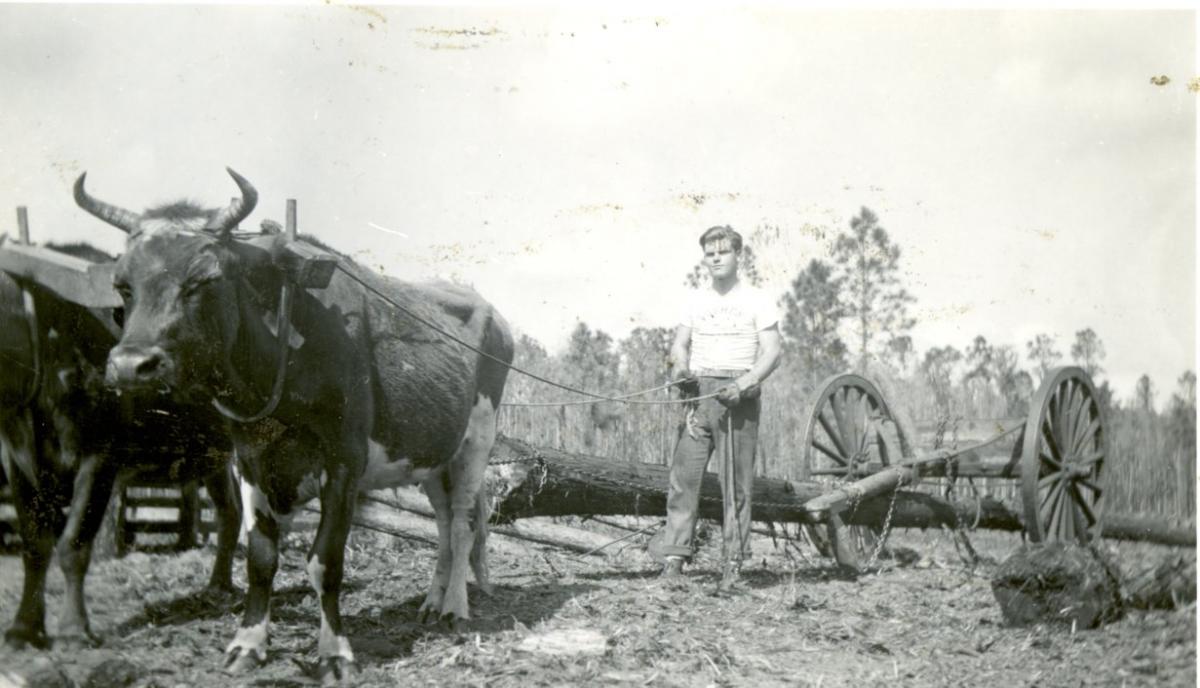 CPS Camp No. 27 Mulberry, FloridaCamp 27, Mulberry, Florida. The oxen and cart that drag many a log to the sawmill.Photo #47. Box 1, Folder 17. MCC Photographs, Civilian Public Service, 1941-1947. IX-13-2.2. Mennonite Central Committee Photo Archive
CPS Camp No. 27 Mulberry, FloridaCamp 27, Mulberry, Florida. The oxen and cart that drag many a log to the sawmill.Photo #47. Box 1, Folder 17. MCC Photographs, Civilian Public Service, 1941-1947. IX-13-2.2. Mennonite Central Committee Photo Archive -
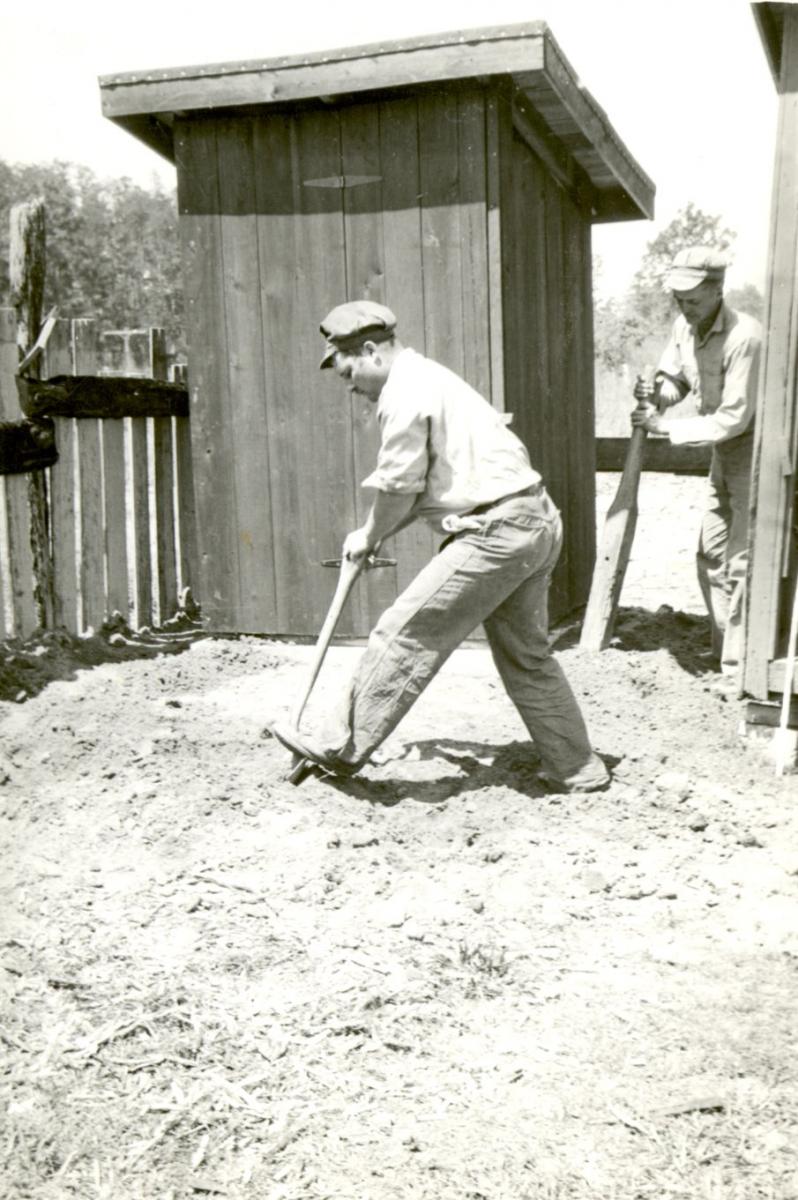 CPS Camp No. 27 Mulberry, FloridaCPS Camp No. 27, Mulberry, Florida. Ed Zehr and Pete Bartel leveling group around completed unit [sanitary privies].Photo #152. Box 1, Folder 17. MCC Photographs, Civilian Public Service, 1941-1947. IX-13-2.2. Mennonite Central Committee Photo Archive
CPS Camp No. 27 Mulberry, FloridaCPS Camp No. 27, Mulberry, Florida. Ed Zehr and Pete Bartel leveling group around completed unit [sanitary privies].Photo #152. Box 1, Folder 17. MCC Photographs, Civilian Public Service, 1941-1947. IX-13-2.2. Mennonite Central Committee Photo Archive -
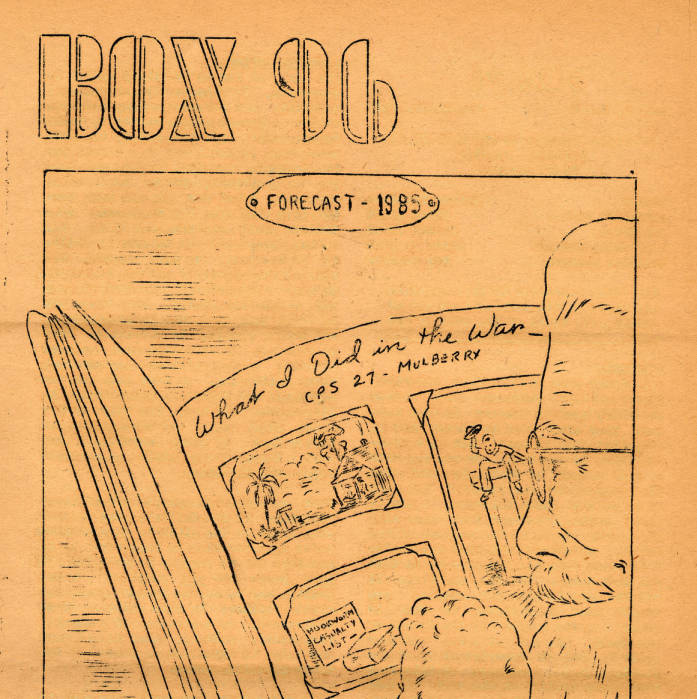 CPS Camp No. 27, subunit 2, Box 96Box 96 was a newsletter published by the men at Camp 27, subunit 2, from April 1944 to March 1945.Digital Image from American Friends Service Committee: Civilian Public Service Records (DG002), Swarthmore College Peace Collection, Swarthmore, Pennsylvania
CPS Camp No. 27, subunit 2, Box 96Box 96 was a newsletter published by the men at Camp 27, subunit 2, from April 1944 to March 1945.Digital Image from American Friends Service Committee: Civilian Public Service Records (DG002), Swarthmore College Peace Collection, Swarthmore, Pennsylvania -
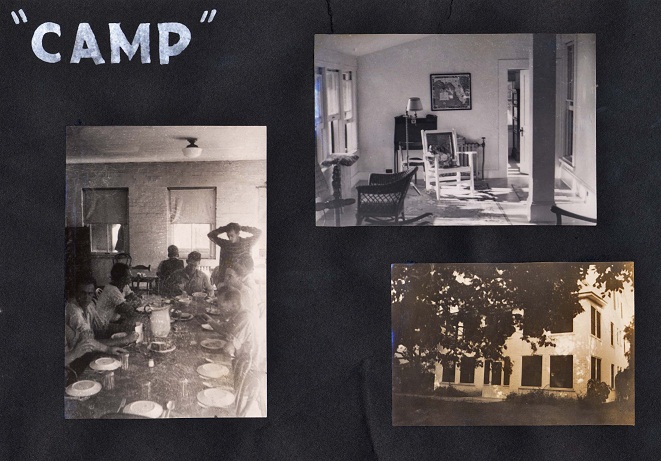 CPS Camp No. 27, subunit 4Photo album of Orlando, Florida, project, page #6.Digital image from American Friends Service Committee: CPS Records (DG002), Swarthmore College Peace Collection, Swarthmore, Pennsylvania
CPS Camp No. 27, subunit 4Photo album of Orlando, Florida, project, page #6.Digital image from American Friends Service Committee: CPS Records (DG002), Swarthmore College Peace Collection, Swarthmore, Pennsylvania -
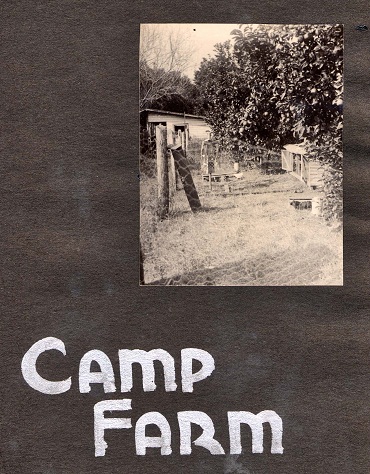 CPS Camp No. 27, subunit 4Photo album of Orlando, Florida, project, page #7.Digital image from American Friends Service Committee: CPS Records (DG002), Swarthmore College Peace Collection, Swarthmore, Pennsylvania
CPS Camp No. 27, subunit 4Photo album of Orlando, Florida, project, page #7.Digital image from American Friends Service Committee: CPS Records (DG002), Swarthmore College Peace Collection, Swarthmore, Pennsylvania -
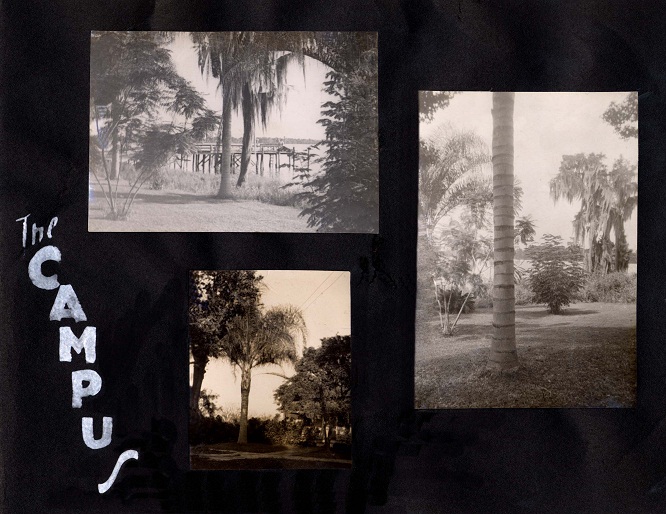 CPS Camp No. 27, subunit 4Photo album of Orlando, Florida, project, page #3. "The Campus".Digital image from American Friends Service Committee: CPS Records (DG002), Swarthmore College Peace Collection, Swarthmore, Pennsylvania
CPS Camp No. 27, subunit 4Photo album of Orlando, Florida, project, page #3. "The Campus".Digital image from American Friends Service Committee: CPS Records (DG002), Swarthmore College Peace Collection, Swarthmore, Pennsylvania -
 CPS Camp No. 27, subunit 4Photo album of Orlando, Florida, project, page #4. "Clear Lake".Digital image from American Friends Service Committee: CPS Records (DG002), Swarthmore College Peace Collection, Swarthmore, Pennsylvania
CPS Camp No. 27, subunit 4Photo album of Orlando, Florida, project, page #4. "Clear Lake".Digital image from American Friends Service Committee: CPS Records (DG002), Swarthmore College Peace Collection, Swarthmore, Pennsylvania -
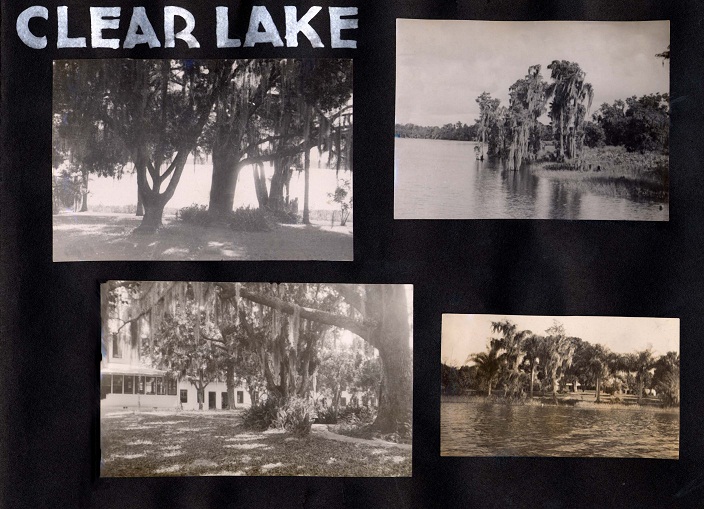 CPS Camp No. 27, subunit 4Photo album of Orlando, Florida, project, page #5. "Clear Lake".Digital image from American Friends Service Committee: CPS Records (DG002), Swarthmore College Peace Collection, Swarthmore, Pennsylvania
CPS Camp No. 27, subunit 4Photo album of Orlando, Florida, project, page #5. "Clear Lake".Digital image from American Friends Service Committee: CPS Records (DG002), Swarthmore College Peace Collection, Swarthmore, Pennsylvania -
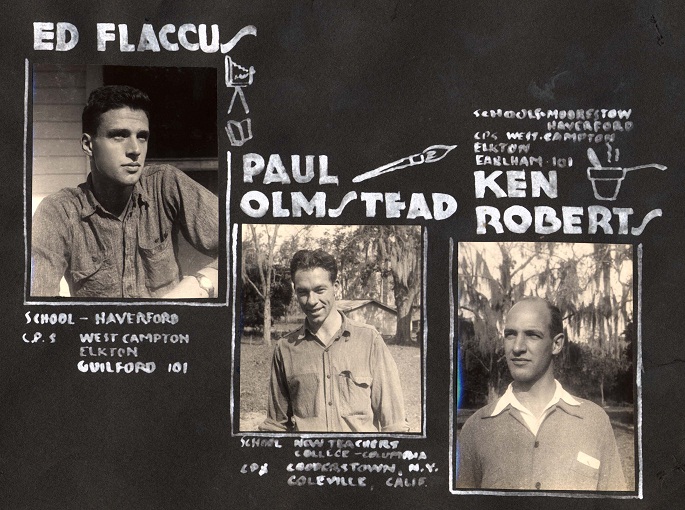 CPS Camp No. 27, subunit 4Photo album of Orlando, Florida, project, page #10. Edward Flaccus, Paul D. Olmstead, Kenneth S. Roberts.Digital image from American Friends Service Committee: CPS Records (DG002), Swarthmore College Peace Collection, Swarthmore, Pennsylvania
CPS Camp No. 27, subunit 4Photo album of Orlando, Florida, project, page #10. Edward Flaccus, Paul D. Olmstead, Kenneth S. Roberts.Digital image from American Friends Service Committee: CPS Records (DG002), Swarthmore College Peace Collection, Swarthmore, Pennsylvania -
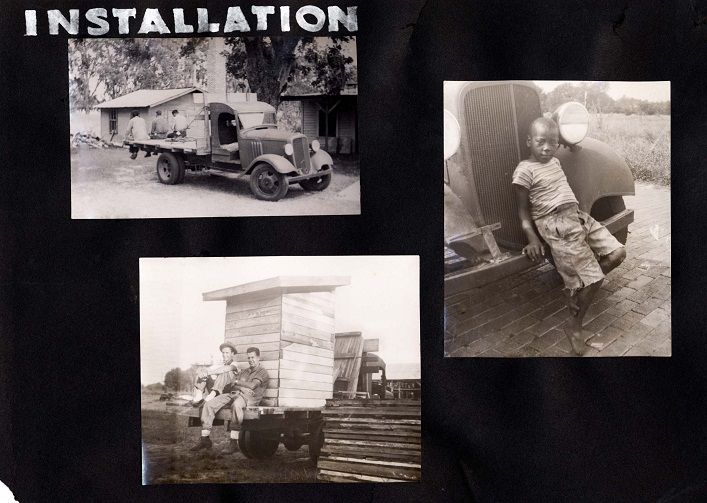 CPS Camp No. 27, subunit 4Photo album of Orlando, Florida, project, page #14. "Installation".Digital image from American Friends Service Committee: CPS Records (DG002), Swarthmore College Peace Collection, Swarthmore, Pennsylvania
CPS Camp No. 27, subunit 4Photo album of Orlando, Florida, project, page #14. "Installation".Digital image from American Friends Service Committee: CPS Records (DG002), Swarthmore College Peace Collection, Swarthmore, Pennsylvania -
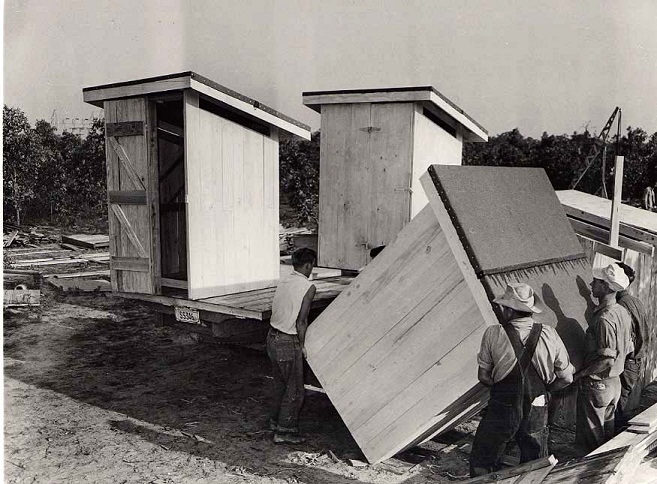 CPS Camp No. 27, subunit 4Loading latrines. Credit: Tony Garnet.Digital image from American Friends Service Committee: CPS Records (DG002), Swarthmore College Peace Collection, Swarthmore, Pennsylvania
CPS Camp No. 27, subunit 4Loading latrines. Credit: Tony Garnet.Digital image from American Friends Service Committee: CPS Records (DG002), Swarthmore College Peace Collection, Swarthmore, Pennsylvania -
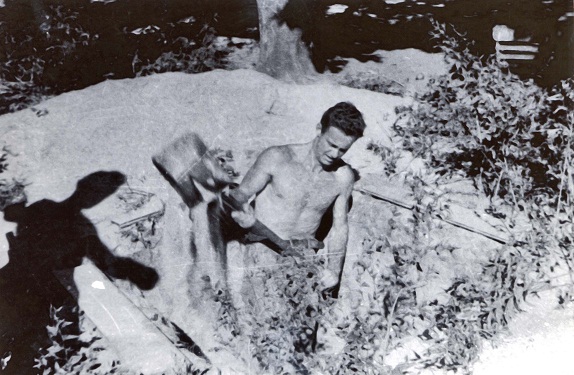 CPS Camp No. 27, subunit 4Agricultural work. Orlando, Florida.Digital image from American Friends Service Committee: CPS Records (DG002), Swarthmore College Peace Collection, Swarthmore, Pennsylvania
CPS Camp No. 27, subunit 4Agricultural work. Orlando, Florida.Digital image from American Friends Service Committee: CPS Records (DG002), Swarthmore College Peace Collection, Swarthmore, Pennsylvania -
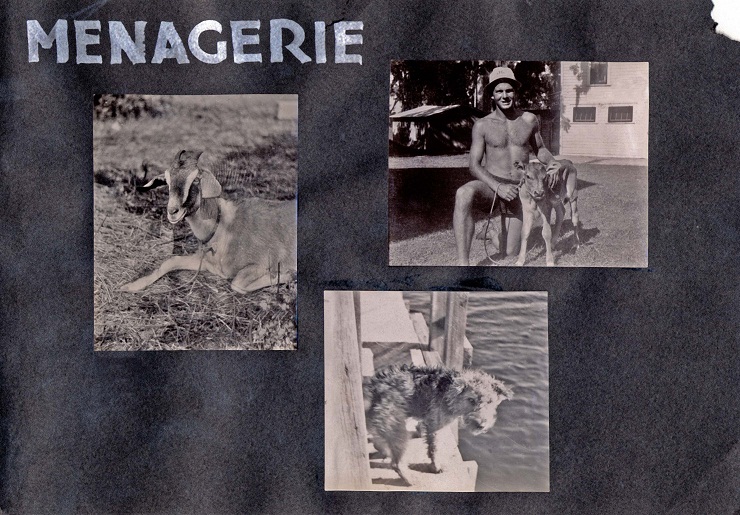 CPS Camp No. 27, subunit 4Photo album of Orlando, Florida, project, page #8. "Menagerie".Digital image from American Friends Service Committee: CPS Records (DG002), Swarthmore College Peace Collection, Swarthmore, Pennsylvania
CPS Camp No. 27, subunit 4Photo album of Orlando, Florida, project, page #8. "Menagerie".Digital image from American Friends Service Committee: CPS Records (DG002), Swarthmore College Peace Collection, Swarthmore, Pennsylvania -
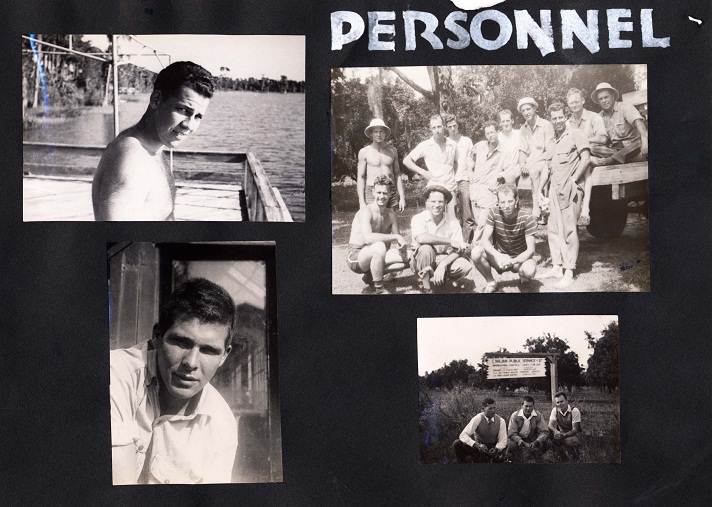 CPS Camp No. 27, subunit 4Photo album of Orlando, Florida, project, page #9. "Personnel".Digital image from American Friends Service Committee: CPS Records (DG002), Swarthmore College Peace Collection, Swarthmore, Pennsylvania
CPS Camp No. 27, subunit 4Photo album of Orlando, Florida, project, page #9. "Personnel".Digital image from American Friends Service Committee: CPS Records (DG002), Swarthmore College Peace Collection, Swarthmore, Pennsylvania -
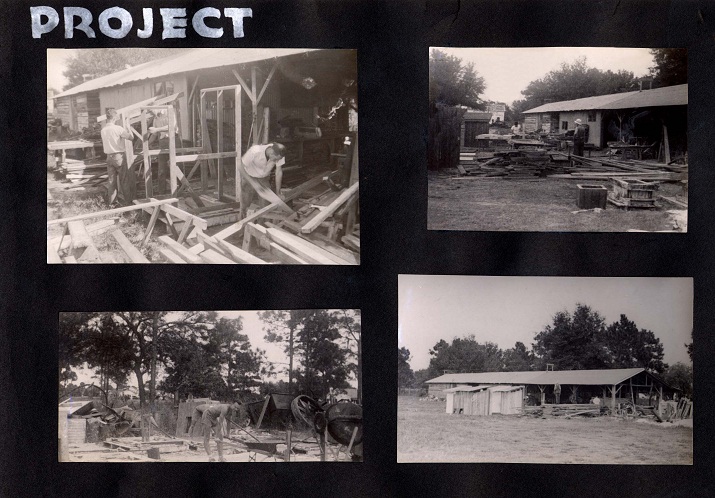 CPS Camp No. 27, subunit 4Photo album of Orlando, Florida, project, page #13. "Project".Digital image from American Friends Service Committee: CPS Records (DG002), Swarthmore College Peace Collection, Swarthmore, Pennsylvania
CPS Camp No. 27, subunit 4Photo album of Orlando, Florida, project, page #13. "Project".Digital image from American Friends Service Committee: CPS Records (DG002), Swarthmore College Peace Collection, Swarthmore, Pennsylvania -
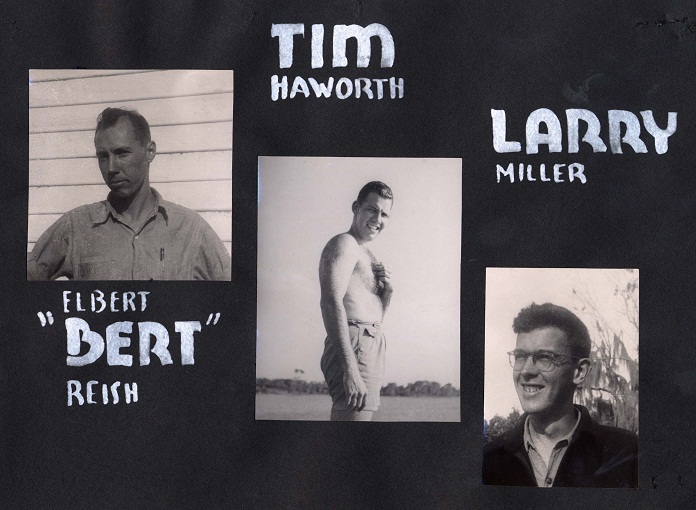 CPS Camp No. 27, subunit 4Photo album of Orlando, Florida, project, page #11. Joseph Elbert Reish, Timothy P. Haworth, Lawrence L. Miller.Digital image from American Friends Service Committee: CPS Records (DG002), Swarthmore College Peace Collection, Swarthmore, Pennsylvania
CPS Camp No. 27, subunit 4Photo album of Orlando, Florida, project, page #11. Joseph Elbert Reish, Timothy P. Haworth, Lawrence L. Miller.Digital image from American Friends Service Committee: CPS Records (DG002), Swarthmore College Peace Collection, Swarthmore, Pennsylvania -
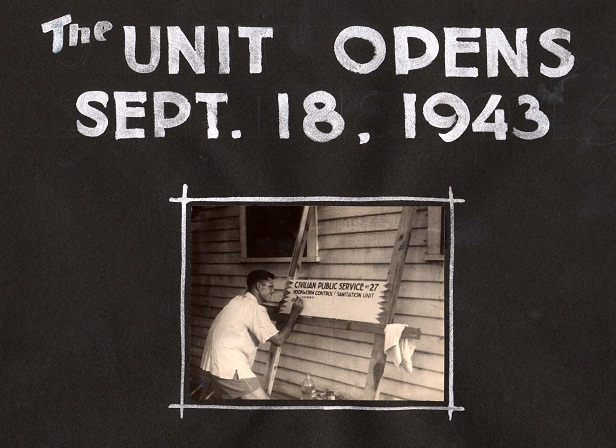 CPS Camp No. 27, subunit 4Photo album of Orlando, Florida, project, page #1. "The Unit Opens, Sept. 18, 1943".Digital image from American Friends Service Committee: CPS Records (DG002), Swarthmore College Peace Collection, Swarthmore, Pennsylvania
CPS Camp No. 27, subunit 4Photo album of Orlando, Florida, project, page #1. "The Unit Opens, Sept. 18, 1943".Digital image from American Friends Service Committee: CPS Records (DG002), Swarthmore College Peace Collection, Swarthmore, Pennsylvania -
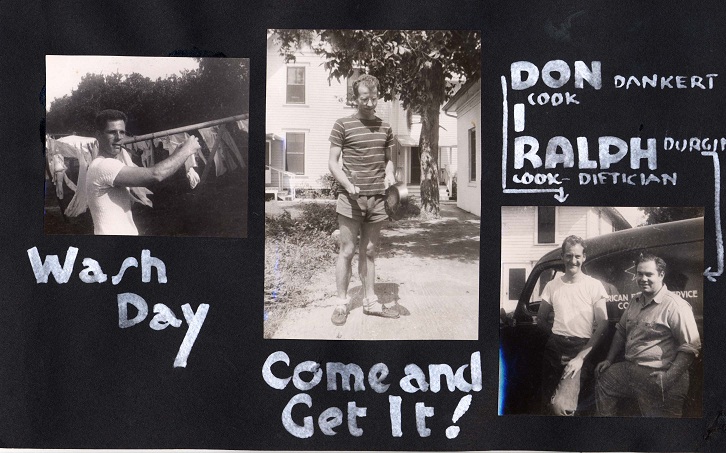 CPS Camp No. 27, subunit 4Photo album of Orlando, Florida, project, page #12. Donald A. Dankert and Ralph P. Durgin.Digital image from American Friends Service Committee: CPS Records (DG002), Swarthmore College Peace Collection, Swarthmore, Pennsylvania
CPS Camp No. 27, subunit 4Photo album of Orlando, Florida, project, page #12. Donald A. Dankert and Ralph P. Durgin.Digital image from American Friends Service Committee: CPS Records (DG002), Swarthmore College Peace Collection, Swarthmore, Pennsylvania -
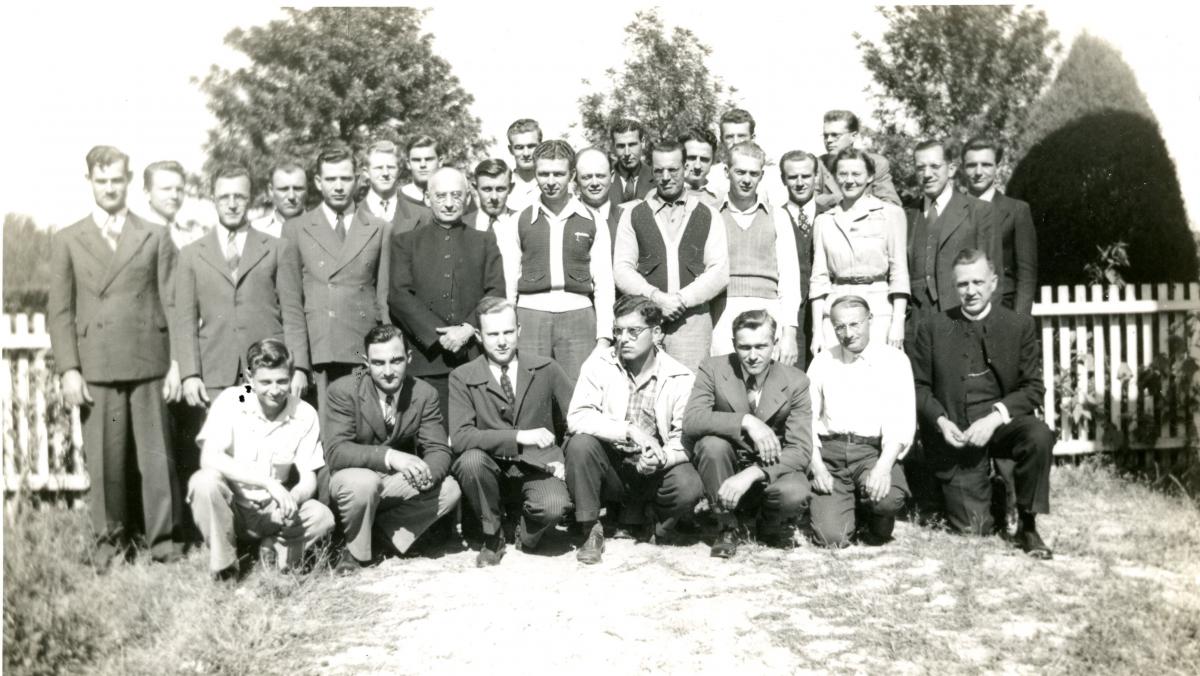 Group of conscientious objectors at CPS Camp # 27Group of conscientious objectors at Civilian Public Service Camp No. 27, Mulberry, Florida, January 1944, during World War II, with visiting ministers Ernest E. Miller and M.C. Lehman. Front row, left-right: 1. Herman Ropp, 2. George Bohrer, 3. Arthur Thiessen, 4. Ethan Horst, 5. Jacob Guhr, 6. Edwin Weaver, 7. Dr. Ernest E. Miller Back row, left-right: 1. Ernest Pankratz, 2. Harold thiessen, 3. William Yoder., 4. Delman Stahly, 5. Dennis Lehman, 6. Lester Hiebert, 7. John Horst, 8. M.C. Lehman, 9. Wesley Prieb, 10. Paul Schmidt, 11. Galen Widmeer, 12. Menno Lohrenz, 13. Willard Baer, 14. Paul Milelr, 15. Roland Bartel, 16. Ernest Shank, 17. Franklin Wiebe, 18. Roland Kauffman, 19. Leo Goertz, 20. Mrs. Harold Martin, 21. Harold Martin, 22. C. Nelson Hostetler Not on picture, but part of group: Peter Bartel, George Falb, Hugh Hostetler, Mervin Hostetler, Dwight Jacobs, Dallas Voran, Harry Weirich, Edmund Zehr, Martin Schroeder, Albert BohrerMennonite Central Committee Historical ArchivesJanuary 1944
Group of conscientious objectors at CPS Camp # 27Group of conscientious objectors at Civilian Public Service Camp No. 27, Mulberry, Florida, January 1944, during World War II, with visiting ministers Ernest E. Miller and M.C. Lehman. Front row, left-right: 1. Herman Ropp, 2. George Bohrer, 3. Arthur Thiessen, 4. Ethan Horst, 5. Jacob Guhr, 6. Edwin Weaver, 7. Dr. Ernest E. Miller Back row, left-right: 1. Ernest Pankratz, 2. Harold thiessen, 3. William Yoder., 4. Delman Stahly, 5. Dennis Lehman, 6. Lester Hiebert, 7. John Horst, 8. M.C. Lehman, 9. Wesley Prieb, 10. Paul Schmidt, 11. Galen Widmeer, 12. Menno Lohrenz, 13. Willard Baer, 14. Paul Milelr, 15. Roland Bartel, 16. Ernest Shank, 17. Franklin Wiebe, 18. Roland Kauffman, 19. Leo Goertz, 20. Mrs. Harold Martin, 21. Harold Martin, 22. C. Nelson Hostetler Not on picture, but part of group: Peter Bartel, George Falb, Hugh Hostetler, Mervin Hostetler, Dwight Jacobs, Dallas Voran, Harry Weirich, Edmund Zehr, Martin Schroeder, Albert BohrerMennonite Central Committee Historical ArchivesJanuary 1944
-
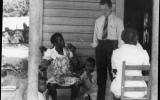
-
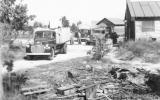 Nov. 12, 1943
Nov. 12, 1943 -
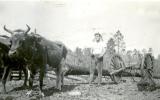
-
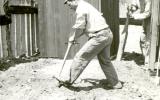
-
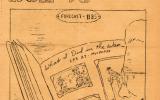
-
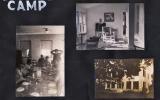
-

-

-

-

-
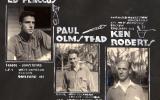
-

-
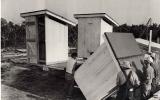
-
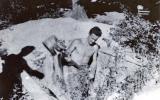
-
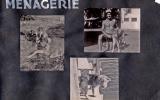
-
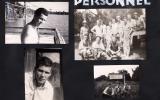
-
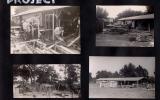
-

-
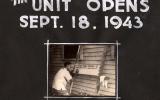
-

-
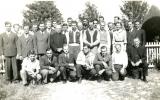 January 1944
January 1944
CPS Camp No. 27 Subunit 2, a public health service project operated by the Mennonite Central Committee opened in September 1943 at Mulberry, Florida and closed in December 1946. The men constructed and installed sanitary privies to prevent soil contamination with hookworm eggs.
Mulberry opened a little over a year after Crestview CPS Camp No. 27 Unit 1. It was located in the town of Mulberry, thirty miles east of Tampa in Polk County.
Directors: Harold Martin, Roman Gingerich, Wes Prieb, Ernest Shank, Edwin Alderfer
Dietician-Matron: Helen Wade Alderfer
Matron: Shirley Erb Gingerich, Mrs. Harold S. Martin
As tended to be the case in Mennonite camps, the majority of the men in the unit when entering CPS tended to report affiliation with a variety of Mennonite denominational groups.
The unit consisted of around twenty-five men.
The men devoted the first weeks to preparing camp buildings, a shop, concrete forms and other tasks necessary to do the work of the unit.
The building of the sanitary units consisted of cutting timber, sawing the lumber, building the structures, and erecting them. By September 1945 they had installed over 1,800 privies in the county.
In the first year “a total of 3,178 [service] days were spent in constructing and installing 835 sanitary privies.” Other projects included moving fourteen cottages to isolate tuberculosis patients, construction of wire baskets for sterilizing dishes in the school lunch rooms, building septic tanks, “and a general health survey of over 12,000 homes”. (Gingerich pp. 252-53).
Results indicated that at least thirty percent of homes in Polk County were in need of sanitary privies and the incidence of hookworm averaged thirty-three percent for the county. Some areas reached eighty-four percent.
The men also worked on other public health projects, including a one-man “dentmobile” touring the state with a dental assistant who cared for the teeth of children too poor to secure treatment. (Keim p. 74)
Living and working in Mulberry introduced the majority of men to what they termed as “the race problem”, and on the whole the camp community sought “a Christian solution”. Articles in the camp newspaper, exchanges between African-American educators and preachers and CPS assignees, set the stage for a conference on interracial cooperation, held May 19-20, 1945.
In February 1946, a group from the Mulberry unit visited the historically black Bethune-Cookman College where nearly twenty CPS men met with faculty and engaged in a full range of activities including a baseball game with students, attendance at African-American Sunday-school classes, preaching services, and a communion service. At an interracial vesper service, the college president explained the CPS program and a camper addressed the gathering.
While this involvement created some tensions in the larger community, there were other challenges at Mulberry as well. Those involved the costs of privies. The men, by increasing efficiency in production had brought down the cost, but the Polk County Health Department still charged residents $27.50. The men felt that the county should not be making profits from their services. The regional director of MCC became involved and ultimately an agreement was written at the close of the program, to use the surplus funds to make free units available to needy areas.
The Mulberry unit was one of five that carried on the foreign relief training program in preparation for post-war work. Each Friday evening men attended a fifty-minute lecture on some aspect of relief taught by professors from Mennonite colleges or by ministers. Courses included Spanish, German, Bible Study, and social problems, among others.
CPS camps were full of lonely men and Mulberry was no exception. Coeds from Florida Southern College not far away dated COs assigned to the unit. (Goossen p. 53)
From April 1944 through March 1945, the men published a camp paper titled Box 96.
For more information on MCC public health units see Melvin Gingerich, Service for Peace: A History of Mennonite Civilian Public Service. Akron, PA: Mennonite Central Committee printed by Herald Press, Scottdale, PA 1949, Chapter XVII pp. 252-275.
For more information on women COs see Rachel Waltner Goossen, Women Against the Good War: Conscientious Objection and Gender on the American Home Front, 1941-47. Chapel Hill, NC: The University of North Carolina Press, 1997.
For general information on CPS camps see Albert N. Keim, The CPS Story: An Illustrated History of Civilian Public Service. Intercourse, PA: Good Books 1990.